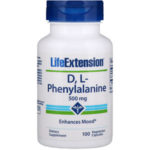-
Details
Potassium and magnesium may be the most important minerals within the heart. They contribute to heart muscle contraction through their role in energy production, and help maintain the electrical charge of the cells.
-
Details
Vitamin D is inadequate in many individuals and daily need appears to be higher than previously thought. Vitamin D’s role in calcium metabolism and bone health is well known.
-
Details
MSM (methylsulfonylmethane), a metabolite of DMSO (dimethylsulfoxide), is a naturally occurring component of every living cell. MSM is a bioavailable form of sulfur, which is necessary for the proper function of the body’s skin, hair, nails, connective tissue, amino acid production, immune system, and healthy joints. Sulfur is considered a macronutrient and must be consumed each day for healthy function and growth of the body.
-
Details
Omega-3 oils contain the essential fatty acids eicosapentaenoic acid (EPA) and docosahexaenoic acid (DHA), which are usually lacking in the typical Western diet that includes high amounts of omega-6 fats.
-
Details
Potassium and magnesium may be the most important minerals within the heart. They contribute to heart muscle contraction through their role in energy production, and help maintain the electrical charge of the cells.
-
Details
D, L-Phenylalanine is an essential amino acid that plays an important role in mood, memory, and mental alertness. It is available in three different forms – L-, D- and DL-. The L- form is the most common and the type in which it is incorporated into the body’s proteins. The D- form acts as a painkiller and the DL- a combination of the two (DL-Pheine).








